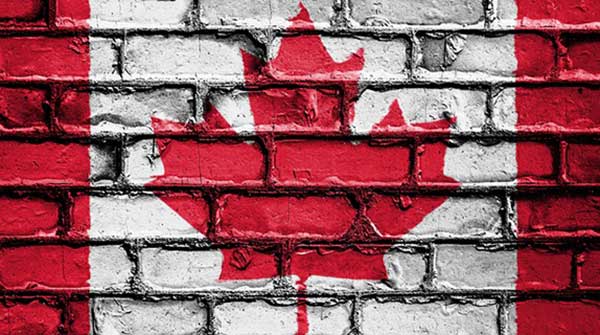 Interprovincial free trade, the lowest hanging fruit on the tree of Canadian economic policy, never fails to raise the federal government’s thirst for marvellously empty rhetoric, especially during the toastmaster circuit of every election cycle.
Interprovincial free trade, the lowest hanging fruit on the tree of Canadian economic policy, never fails to raise the federal government’s thirst for marvellously empty rhetoric, especially during the toastmaster circuit of every election cycle.
So it was earlier this year when New Brunswick’s very own Dominic LeBlanc – minister of Intergovernmental and Northern Affairs and Internal Trade – cheered the imminent transformation of a hot mess of regulatory walls into a cool plan for open borders between provinces.
Appropriately, perhaps, the celebration began with an ode to booze.
“The government of Canada is taking a leading role in promoting trade within Canada, including in wine, beer and spirits, to grow the economy and create good middle-class jobs,” a news release boasted.
Of course, some preferred to keep their elbows straight and their gazes narrow, a fact that didn’t go unnoticed at the host’s table. “The only remaining barriers can only be removed by the provinces and territories,” the communiqué adduced accurately, if somewhat archly.
All of which left purveyors and consumers of alcohol in the Atlantic provinces exactly where their forebears started generations ago: at the mercy of provinces whose aggravating, and oftentimes byzantine, trade regimes cost the regional economy tens of millions of dollars a year (nationally, according to some estimates, the annual price tag for maintaining internal barriers tops $130 billion).
In fact, along the East Coast, wine, beer and spirits are just … well … drops in a massive bucket. Our small collection of principalities – hosting all of 2.4 million souls – remains one of the most economically confused, backward and divided in the nation.
We make it tough for university students to transfer their credits from one institution to another; for skilled tradespeople to find meaningful work if they choose to leave the jurisdiction in which they received their accreditations; for doctors, lawyers and veterinarians to move between provinces without first obtaining professional papers proving that the practices of law and medicine are, somehow, compliant with local rulebooks.
If you’ve never tried to move your corporate head office two-and-a-half hours down the highway from Moncton, N.B., to Halifax, N.S., I know a guy who will ruefully regale you with tales from the bureaucratic crypt involving lawyers, accountants, assorted factotums, and the red tape they apparently use to brace their britches.
Still, with apologies to LeBlanc, we can’t look to the feds to solve our trade problems. That’s not their job. What’s more, they wouldn’t know where to start.
Here in the Maritimes, though, we should have a clue. After all, we’ve been banging away at this thing since before John A. Macdonald wore short pants.
How, then, has it been going?
Certainly, the Atlantic Provinces Economic Council wants to know. In a paper published in June 2018, the think-tank followed up on research it prepared for a new creature of the four Atlantic governments – the Joint Regulatory and Service Effectiveness Office – two years earlier.
In the original study, it made several recommendations. One was to “prioritize areas (for trade liberalization) that will have the largest economic impact.” Another was to establish an “effective and comprehensive trade, regulatory and co-operation agreement.”
But in the 2018 report, APEC mused, “The Joint Office does not yet seem to be fully operating on a regional basis as originally intended. Nova Scotia is the only province to date to have a full-time regulatory lead only focused on regulatory issues to support the work of the Joint Office, (which also) does not have its own, independent website in the same way that other regional organizations do, such as the Council of Atlantic Premiers.”
If we don’t take internal free trade seriously, then we doom future generations to more years of pointless wrangling over the exchange of goods and services.
And it won’t be free wine from the federal government’s low-hanging fruit we guzzle.
It’ll be our own sour grapes.
Alec Bruce is a Halifax journalist who writes about business, politics and social issues.
The views, opinions and positions expressed by columnists and contributors are the author’s alone. They do not inherently or expressly reflect the views, opinions and/or positions of our publication.


